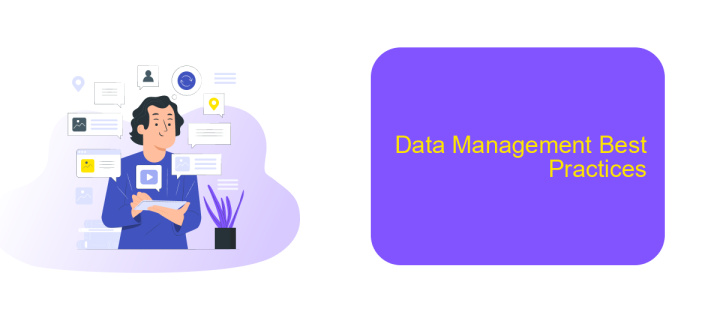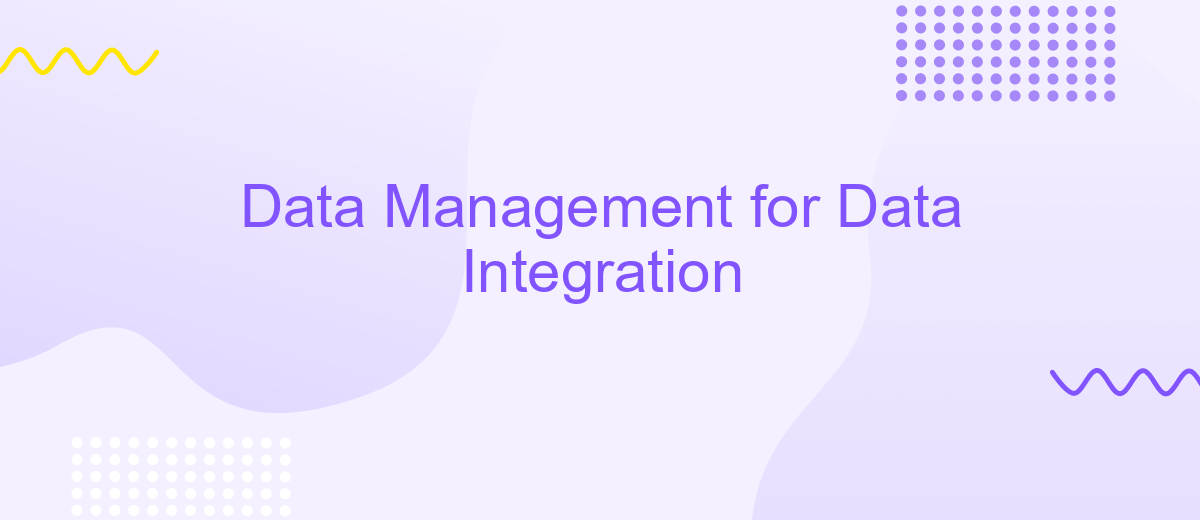Data Management for Data Integration
Effective data management is crucial for seamless data integration, enabling organizations to unify disparate data sources into a cohesive, accessible framework. By implementing robust data management practices, businesses can ensure data accuracy, consistency, and availability, facilitating informed decision-making and operational efficiency. This article explores key strategies and best practices for optimizing data management to achieve successful data integration.
Introduction
Data management is a critical component of any successful data integration strategy. It involves the collection, storage, and use of data in a way that ensures its accuracy, accessibility, and reliability. Effective data management enables organizations to integrate data from various sources seamlessly, providing a unified view that supports better decision-making.
- Ensuring data quality and consistency
- Implementing robust data governance policies
- Utilizing advanced data integration tools
- Maintaining data security and compliance
One of the tools that can significantly streamline the data integration process is ApiX-Drive. This service allows businesses to automate data transfers between different applications and platforms, reducing manual efforts and minimizing errors. By leveraging such tools, organizations can achieve more efficient and reliable data integration, ultimately enhancing their overall data management capabilities.
Data Governance and Data Quality

Effective data governance is crucial for successful data integration, ensuring that data is accurate, consistent, and secure across different systems. It involves establishing policies, procedures, and standards for managing data assets. Data governance helps in defining roles and responsibilities, ensuring compliance with regulations, and maintaining data integrity. By implementing robust data governance frameworks, organizations can streamline their data integration processes, reduce risks, and enhance decision-making capabilities.
Data quality is equally important in the context of data integration. High-quality data is essential for generating reliable insights and making informed decisions. It involves processes such as data cleansing, validation, and enrichment to ensure that the data is accurate, complete, and up-to-date. Tools like ApiX-Drive can play a significant role in maintaining data quality by automating data integration tasks and providing real-time data synchronization across various platforms. By leveraging such services, organizations can enhance their data quality, leading to more effective and efficient data integration.
Data Integration Tools and Technologies

Data integration tools and technologies are essential for combining data from different sources into a unified view. These tools facilitate the extraction, transformation, and loading (ETL) process, ensuring that data is accurate, consistent, and ready for analysis.
- ETL Tools: These tools, such as Apache Nifi and Talend, automate the data extraction, transformation, and loading process.
- Data Integration Platforms: Platforms like ApiX-Drive enable seamless integration between various applications and services, simplifying data synchronization and automation.
- Data Virtualization Tools: Tools like Denodo provide real-time data integration across multiple sources without physical data movement.
- API Management Tools: Solutions like Apigee manage and secure APIs, facilitating data exchange between systems.
Choosing the right data integration tools and technologies depends on the specific needs of your organization. Platforms like ApiX-Drive offer a user-friendly interface and pre-built connectors, making it easier to integrate disparate data sources without extensive coding. By leveraging these tools, organizations can streamline their data workflows, enhance data quality, and drive better decision-making.
Data Management Best Practices

Effective data management is crucial for successful data integration. Ensuring data quality, consistency, and accessibility can significantly enhance the efficiency of your integration processes. One of the first steps is to establish clear data governance policies that define roles, responsibilities, and data standards.
Data integration often involves multiple sources and formats, making it essential to use automated tools to streamline the process. Tools like ApiX-Drive can simplify the integration of various systems by providing a user-friendly platform that automates data transfers and synchronizations, reducing the risk of errors and saving valuable time.
- Implement robust data validation techniques to ensure data accuracy.
- Regularly audit and clean data to maintain its integrity.
- Use encryption and access controls to protect sensitive information.
- Leverage automated tools like ApiX-Drive for seamless data integration.
- Establish a data backup and recovery plan to prevent data loss.
By following these best practices, organizations can ensure that their data integration efforts are both efficient and secure. Adopting automated solutions and maintaining stringent data governance can lead to more reliable and actionable insights, ultimately driving better business outcomes.
- Automate the work of an online store or landing
- Empower through integration
- Don't spend money on programmers and integrators
- Save time by automating routine tasks
Conclusion and Future Trends
In conclusion, effective data management is crucial for successful data integration, ensuring that disparate data sources can be seamlessly combined to provide comprehensive insights. The use of automated tools and platforms, such as ApiX-Drive, can significantly streamline the integration process, reducing manual effort and minimizing errors. By leveraging such services, organizations can achieve real-time data synchronization and maintain data integrity across various systems.
Looking ahead, the future of data integration will likely be shaped by advancements in artificial intelligence and machine learning. These technologies promise to enhance data mapping, transformation, and validation processes, making integrations more intelligent and adaptive. Additionally, the growing adoption of cloud-based solutions will further simplify data management, offering scalable and flexible integration options. As these trends evolve, businesses must stay updated to harness the full potential of their data assets.
FAQ
What is data management for data integration?
Why is data integration important for businesses?
How can I automate data integration processes?
What are the common challenges in data integration?
Can I integrate data from multiple platforms without coding skills?
Routine tasks take a lot of time from employees? Do they burn out, do not have enough working day for the main duties and important things? Do you understand that the only way out of this situation in modern realities is automation? Try Apix-Drive for free and make sure that the online connector in 5 minutes of setting up integration will remove a significant part of the routine from your life and free up time for you and your employees.


